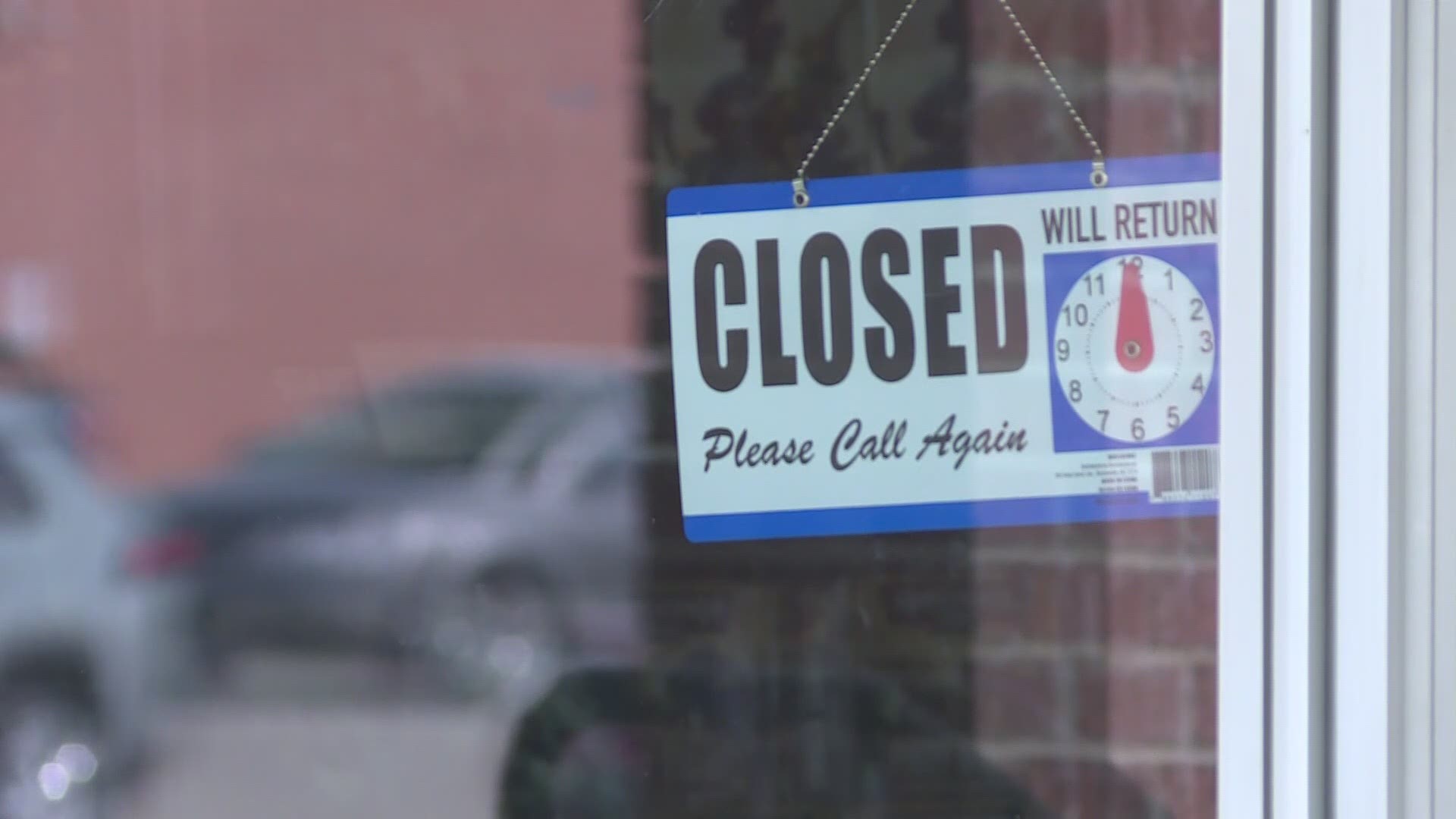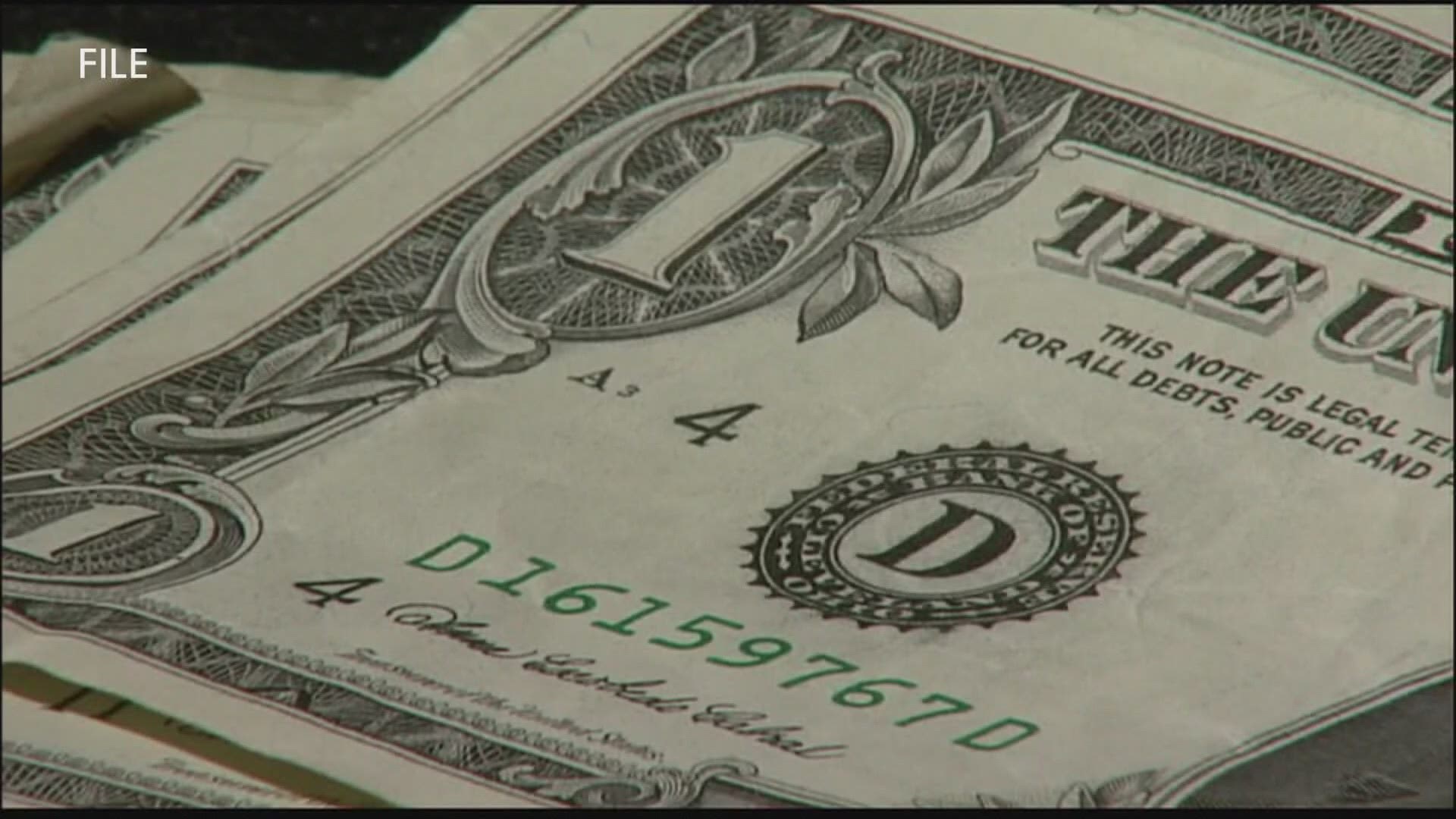GRAND RAPIDS, Mich. — On Tuesday, Gov. Gretchen Whitmer signed a relief bill that provides support for families, frontline workers, and small businesses.
The relief bill includes $55 million to help small businesses impacted by COVID-19. Grants of up to $20,000 will be made available to small businesses across the state that need support this winter. The relief bill also includes $3.5 million for grants of up to $40,000 each for live music and entertainment venues, and includes $45 million in direct payments to workers who have been laid off or furloughed as a result of the virus.
"I proposed this stimulus plan to the legislature in November because I know how much our families, frontline workers, and small businesses need relief," Whitmer said Tuesday. "This bipartisan bill will provide families and businesses the support they need to stay afloat as we continue working to distribute the safe and effective vaccine and eliminate COVID-19 once and for all."
Whitmer said "there is still more work to do" to eliminate the virus in the state and keep the economy afloat.
"All Michiganders have a personal responsibility to do their part and mask up, practice safe social distancing, and avoid indoor gatherings where the virus can easily spread from person to person," Whitmer continued. "We will beat this virus together."
The governor also signed bipartisan Senate Bill 604, extending unemployment benefits for Michiganders who have lost work as a result of the COVID-19 pandemic from 20 to 26 weeks until the end of March 2021.
"No Michigander should have to worry about how to put food on the table or pay their bills, especially during a global pandemic,” Whitmer said.
On Sunday, President Donald Trump signed a $900 billion pandemic relief package. The massive bill includes $1.4 trillion to fund government agencies through September and contains other end-of-session priorities such as increase in food stamp benefits.
The bill also extends benefits to self-employed and gig workers and provides all unemployment recipients with an additional $300 per week.
The Michigan Department of Labor and Economic Opportunity said Monday that some unemployment insurance payments may take longer than usual due to the delayed timing in the finalization of the federal relief package. The delay is temporary and the will only impact the certification and payment of benefits for claims under the federal PUA and PEUC programs.
When Whitmer signed the relief bill, she also line item vetoed a $220 million section of the bill that was slated to the employer-owned Unemployment Insurance Trust Fund. According to to the governor's office, the trust is a pool of funds designed to help businesses fund benefits for laid off workers.
Whitmer stressed that general fund dollars must be used to fund essential services like vaccines and PPE, not to give tax breaks to big businesses. During the press conference, Whitmer said there were already funds allocated through a different bill that she signed on Monday to extend unemployment through March, and this funding was actually going to the Unemployment Insurance Trust Fund.
"To be very clear, this will not impact individual workers," Whitmer explained. "General Fund dollars have got to be used to fund essential services, like vaccines and PPE not to give tax breaks to big businesses right now."
"This (bill) went too far, because it is really important that we use every precious General Fund dollar we can to help get through the crisis," she continued.
Michigan Republican Party Chairman Laura Cox issued a statement Tuesday saying Whitmer use her line-item veto power to block a provision which would have extended unemployment benefits for workers affected by the pandemic.
"First, Governor Whitmer put people out of work with her shutdown orders. Then, through her administration's incompetence, it became almost impossible for out-of-work Michiganders to receive unemployment benefits," Cox's statement read.
"Now, Whitmer has vetoed extending aid to workers even though her draconian shutdowns continue. Clearly, the 'science' Whitmer is following doesn't include basic economics, and Michigan families are paying the price," the statement continued.
Mark Huizenga (R-Walker) also said he was "disappointed" in the Governor's veto. He said it hurts small businesses as well, because when the fund falls below a certain threshold, every employer has to pay more. He calls this a way to mitigate some of those losses.
"It's troubling because literally every employer in the entire state would benefit from the dollars going into this," said Huizenga, "We all know that it's a very challenging time for for every employer. Employers want to take care of their people, it just puts an additional burden on them."
However, he did say it was great to see the bipartisan package go through, especially at the end of the year.
"I'm really proud to say that our legislature worked very closely together, both the House and the Senate, Republicans and Democrats," said Huizenga, "I think that's really powerful. It sends a strong statement that we care, and we want to see our economy get back on track, and we want to see people safe and healthy."
I think that's really powerful. And it sends a strong statement that we care and we want to see our economy get back on track and we want to see people safe and healthy.
During the press conference, the governor urged the legislature to return to work in January and pass a permanent extension of unemployment benefits and an increase in weekly benefits.
RELATED VIDEO:
►Make it easy to keep up to date with more stories like this. Download the 13 ON YOUR SIDE app now.
Have a news tip? Email news@13onyourside.com, visit our Facebook page or Twitter. Subscribe to our YouTube channel.


